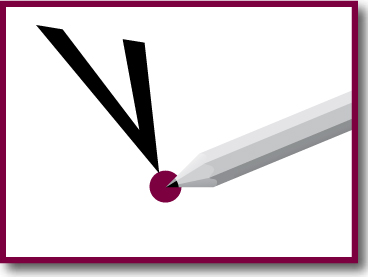Contributing Editor Vlada Limic continues with a theme she introduced in the March 2014 Bulletin issue:
In my first column I announced my intention to disclose my frustration with a common scientific meeting type called the workshop. My fifteen-plus years of post-graduate research activity should provide me with enough experience to write about it. Nevertheless, I am likely lacking wisdom concerning topics of a controversial nature. In particular, I am aware that at this very moment several probability workshops are being planned worldwide by some of our most respectable colleagues, and that they are all being planned in the format that I am about to criticize. So before launching the critique, let me point out that it is not directed towards any particular event or person, and to remind the reader of my willingness to make visible any of your constructive remarks on the topic (see my previous column). One final caveat: this critique does not apply to the workshops organized in celebration/honor of someone or something. In fact, I believe that here the word “workshop” is simply a misnomer, chosen partly due to its space saving characteristic with respect to “festive colloquium” or a similar designation, and partly due to the unfortunate fact that the formats of meetings of a priori different nature do resemble each other quite strongly in reality.
Have you ever participated in a workshop on photography, or on writing in an ancient script, or perhaps on apiculture, gardening, or any similar non-math activity that—just like maths—requires both the understanding of theory and the acquisition of practical skills? If you have, I am glad, for
(i) it is an indication that you have (or at least had) a life, and
(ii) you are likely to appreciate more quickly the critique to be made.
Regardless of your answer above, I include a brief description of an event from my pre-mathematics past, which turned out to be an important turning point… It will also help me later (in my next column) with discussing desirable features of a math workshop which is learning-oriented.
In the summer of 1988, I participated in a two- or three-week master class in classical guitar, held in a small town on the Istria peninsula by a renowned musician of Catalan origin. We were about 20 participants, pre-selected based on a method I have forgotten, financially supported by a state grant, aged between 15 and 22 approximately, of varying ability in terms of guitar playing technique, originating from four different republics of the then Socialist Federal Republic of Yugoslavia, with the following property in common: we were all quite seriously interested in learning to play better, if not ambitious to become professional players. Several months before the event, we were given scores of the pieces that would be covered, and were told to at least read them well, but ideally to work more on them if we wished to really benefit from the experience—advice each of us heeded with reverence.
I omit the details pertaining to the actual format of the class, and instead make several remarks:
(a) it was truly a learning experience for each and every participant,
(b) it was not a holiday (each student was pushed to evolve as much as possible),
(c) part of the time was devoted to individual classes with the master, but we also learnt much by playing together, in the presence of other peers and/or the master musician,
(d) I played duets with renowned concert guitarists/lutenists of today, and
(e) before the end of the next school year I understood that becoming a professional musician was not part of my life path.
Even if you disapprove of my style—or a brag note in (d)—I doubt you can rebut this as a good example of a successful workshop on classical guitar playing.
Consider now a generic Workshop on Special Topic in probability. I will not waste space on details about its format that we all know so well, but will come straight to the point: even an experienced probabilist who actively listens to all (or most of) the talks, will at the end be able to answer briefly the following questions concerning Special Topic: Who is collaborating with whom? On what kind of new problems? Which techniques they use? What was accomplished/conjectured so far? … and will likely not be able to do much more than that. I abstain from commenting on the possibility of acquiring any new practical skills in Special Topic during the meeting.
It seems that more appropriate names for such an event would be “Workshop on Who figures and What features in Special Topic” or simply “Showcase/Marketplace on Special Topic.” It is quite disappointing to see such a dissipation of human, intellectual (often brilliant) and material (often substantial) resources, and even more so when this collective effort is branded as workshop.
My apologies if this sounds severe or curt. Indeed, I regret not having more room for elaboration. Depending on your responses, I could include further observations next time. However, I am also getting impatient about bringing a Workshop into focus.
Email Vlada at vlada.limic@math.u-psud.fr

Comments on “Vlada’s Point: The WorkSHOP”